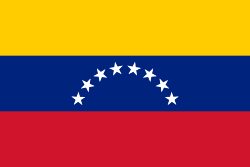Top 5 Most Socialist Countries In The World

Socialism, as an economic and political ideology, has had a significant impact on societies across the globe. It advocates for the collective ownership and control of the means of production, with the aim of creating a more equitable and just society. While the concept of socialism is multifaceted and can take various forms, certain countries have embraced socialist principles and implemented policies that prioritize social welfare, wealth redistribution, and government involvement in the economy.
This article explores the top 5 most socialist countries in the world, examining their economic systems, social policies, and the extent to which they align with socialist ideals. It is important to note that the degree of socialism can vary among these countries, and some may have mixed economies with elements of both socialism and capitalism. Nonetheless, they have made significant efforts to create systems that prioritize the well-being of their citizens, reduce inequality, and promote collective decision-making.
These countries represent diverse regions and have different historical and socio-political contexts that have shaped their approach to socialism. From South American nations like Venezuela and Cuba, where socialist policies have been central to their political identities, to countries like Sri Lanka and Laos in Asia, which have incorporated socialist principles into their governance models, each nation brings its unique experiences and challenges to the table.
By examining these countries and their socialist policies, we can gain insights into the potential benefits and limitations of such economic and political systems. It is essential to recognize that the success of socialist policies depends on a multitude of factors, including governance, global economic dynamics, and the ability to strike a balance between collective ownership and individual freedoms.
Without further ado, let us delve into the top 5 most socialist countries in the world and explore their approaches to fostering equality, social justice, and economic well-being for their populations.
Most Socialist Countries in the World 2024
- Democratic Socialist Republic of Sri Lanka
- Bolivarian Republic of Venezuela
- Republic of Cuba
- Lao People's Democratic Republic
- People's Republic of China
1. Democratic Socialist Republic of Sri Lanka

READ ALSO » Top 10 Most Successful Socialist Countries In The World 2024
Sri Lanka, officially known as the Democratic Socialist Republic of Sri Lanka, is a country in South Asia that has embraced socialist policies. Since its independence in 1948, Sri Lanka has made significant strides in establishing a welfare state. The government has implemented policies aimed at reducing poverty, improving education, and providing healthcare for all citizens. The country's socialist agenda is reflected in its commitment to free education and healthcare, subsidized housing, and strong labor rights. Despite facing economic challenges in recent years, Sri Lanka remains one of the leading socialist nations.
2. Bolivarian Republic of Venezuela

Venezuela, located in South America, has been at the forefront of socialist policies under the leadership of Hugo Chávez and his successor, Nicolás Maduro. The country has pursued an agenda of wealth redistribution, nationalization of key industries, and social welfare programs. The government has implemented price controls on essential goods, nationalized oil production, and established various social programs aimed at reducing poverty and improving access to healthcare and education. However, Venezuela has faced significant economic challenges, including hyperinflation, shortages of essential goods, and political instability, which have affected the success of its socialist policies.
3. Republic of Cuba

Cuba, a Caribbean island nation, has long been associated with socialist policies. Following the Cuban Revolution in 1959, Fidel Castro established a socialist state with a planned economy. The government has nationalized major industries, implemented universal healthcare and education systems, and provided subsidized housing and basic necessities to its citizens. While Cuba has achieved notable successes in healthcare and education, its economy has faced challenges due to the U.S. trade embargo and other factors. Nonetheless, Cuba remains one of the most well-known socialist nations.
4. Lao People's Democratic Republic

The Lao People's Democratic Republic, commonly known as Laos, is a landlocked country in Southeast Asia that has embraced socialist principles. The government of Laos has a strong presence in the economy, with state ownership of key industries, central planning, and policies aimed at reducing poverty and inequality. The country's socialist policies include universal healthcare, free education, and a focus on rural development. Despite facing economic challenges and transitioning to a more market-oriented economy in recent years, Laos continues to have a socialist system in place.
5. People's Republic of China
China, the world's most populous country, has undergone significant economic and political transformation since the establishment of the People's Republic of China in 1949. While China has embraced market-oriented reforms and introduced elements of capitalism, it remains a socialist country with a strong state presence in the economy. The government has implemented policies aimed at reducing poverty, improving infrastructure, and promoting social welfare. China's socialist system includes state-owned enterprises, centralized planning, and a strong emphasis on social harmony and collective goals.
In conclusion, the top 5 most socialist countries in the world demonstrate the diverse approaches and degrees of socialism adopted by different nations. These countries prioritize social welfare, equality, and government intervention in the economy to varying extents. While each country faces unique challenges and criticisms, their commitment to socialist principles shapes their policies and contributes to the well-being of their citizens. It is important to note that the concept of socialism continues to evolve, and the success or failure of socialist policies depends on a variety of factors, including the country's specific context, governance, and global economic dynamics.
